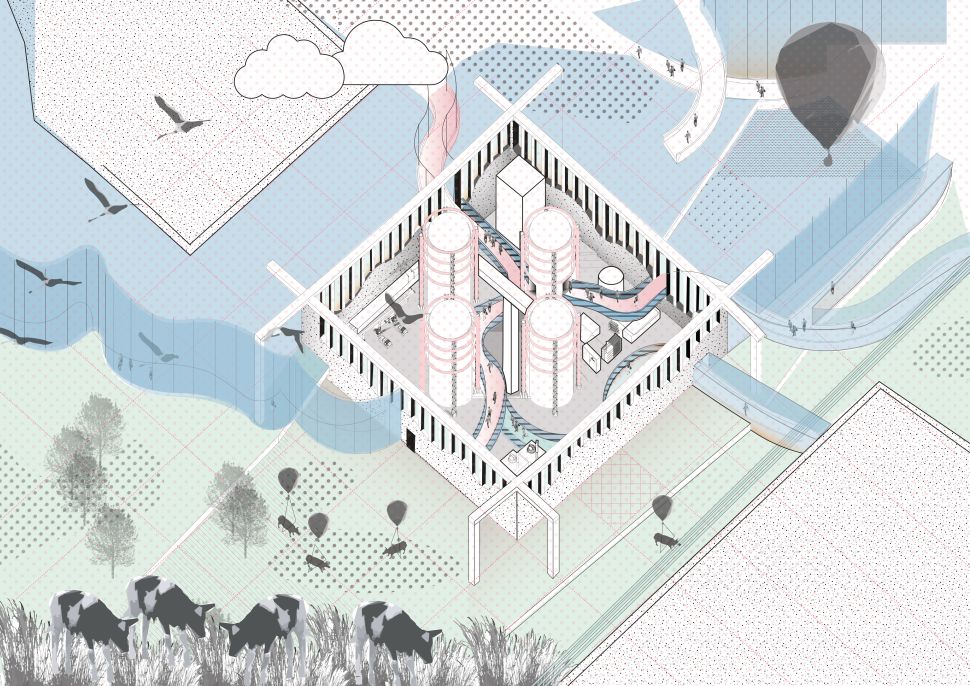Infrastructure Space operates as a design and research atelier using data mapping and spatial analysis to develop architecturally driven proposals that test possible spatial futures. We are particularly interested in the interface between technology and physical space, and how this has manifested in architectural and urban form. Our approach is cross thematic, spans a range of spatial scales and embraces value and effectiveness in their manifold forms.
This year we have been evaluating the spatial implications of Brexit for the UK – Republic of Ireland border, specifically exploring ideas of digitally enabled space and seamlessness. The atelier comprises BA and MArch students and our pedagogy is grounded in multi-level, cross-disciplinary activity. The year began with a research-led, JMCE funded, workshop which brought together architects, technology consultants, community stakeholders, academics and students to trace the production and mobility of materials in a range of possible Brexit outcomes. This set the scene for linked studio briefs which have studied the relationship between manufacturing, logistics + distribution and customs + services. In October 2019, we travelled to Kyiv, Ukraine, to experience borders and explore architectural latency and obsolescence.
BA3 have focussed on future forms of manufacturing. Through the lens of Brexit, projects have questioned what will be produced in future factories, the nature of workers and their skills and how space is affected by process and quality monitoring. Projects have considered the lived experiences and what form factory towns of the future might take.


